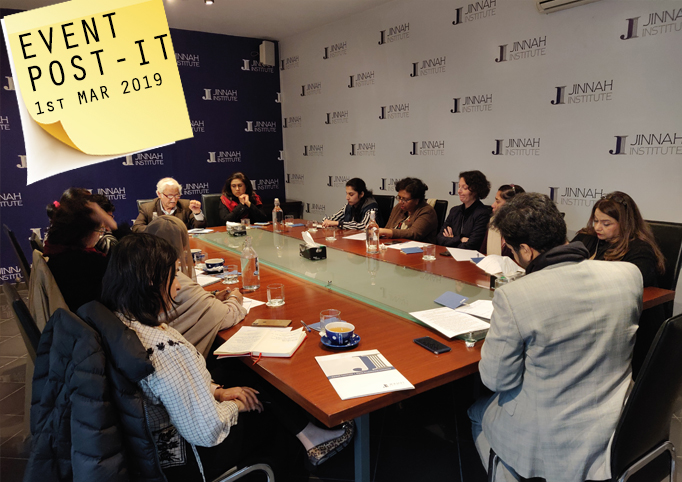Round Table
Child Marriage Restraint Amendment Bill
Date: March 1, 2019
ISLAMABAD: The long anticipated Child Marriage Restraint (Amendment) Bill will create due recognition of child rights in Pakistan and provide a boost to advocacy efforts, stated legislators and child rights activists at Jinnah Institute’s roundtable, titled ‘Pakistan’s Child Rights: Minimum Age and the Legislative Agenda’ held on Friday, 1st March, 2019.
The Child Marriage Restraint (Amendment) Bill was introduced by Senator Sherry Rehman in December 2018 and has been approved by the Senate Standing Committee on Human Rights. It will undergo another vote at the Senate before being shared with the National Assembly. Major amendments in the Bill include raising the minimum age for marriage to 18 years, and making it a criminal offence to contract marriage with a minor.
Participants speaking at the roundtable observed that the Bill marked an important milestone in the child rights movement, which has undergone setbacks over the last two decades owing to prolonged conflict in Pakistan. They observed that the child rights agenda was not given adequate political attention by successive governments, although there has been incremental legislative progress. The current momentum must be capitalized by civil society organizations in conjunction with lawmakers to make this bill successful.
They stressed the establishment of a Child Rights Commission, as mandated by the National Commission on the Rights of the Child Act, 2017. Once set up, the Commission will review legislation pertaining to minors, and recommend a national framework for implementation. Participants pointed out the glaring gaps in data that prevent effective internal reporting on the status of children, making it difficult for Pakistan to prepare a strategy on vulnerable children, including child domestic servants, children in armed conflict, unattended orphans and juvenile prisoners. A national database needs to be created that assists evidence-based planning for child rights, and assists decision makers in evaluating the impact of their policy action.
Participants stated that the media can play a significant role in amplifying perspectives on child rights, but regretted that negligible airtime on electronic media is given to social policy issues, as they are considered “soft beats”. A disproportionate amount of coverage is given to hard politics on television, therefore, child rights are never discussed in prime time talk shows. To bring about awareness on child rights, they suggested that serial dramas can be produced exploring human stories that resonate better among audiences not conversant in policy issues. Television programming geared towards children must be undertaken, as well as greater coordination between mediapersons and civil society organizations to enhance advocacy efforts.
They also felt that 2019 should be declared the Year of the Child to highlight the importance of child rights. The federal government should lead a child rights movement in partnership with civil society groups. In addition, a robust National Action Plan must be devised on child rights to ensure effective strategy, implementation and monitoring of outcomes. Participants agreed that all children deserve the state’s protection, however, those children directly exposed to conflict, crime and poverty urgently require interventions by the state. Girl children in particular face mortal health risks because of underage marriages, and the Bill will go a long way in saving their lives.

